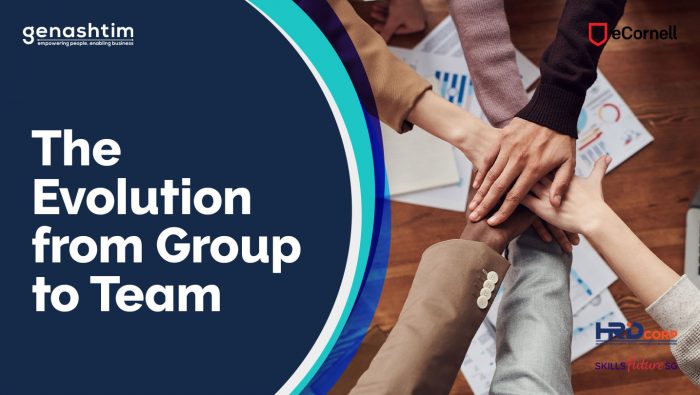On the surface, you might feel that there are no big differences between groups and teams. You might even opine that how a group and a team function is interchangeable. Although the differences between groups and teams may seem subtle at first, when you delve deeper, you will see these defined distinctions:
- Groups have arbitrary behavior where members do not have any allegiance to each other.
- Teams’ members are collectively committed to each other and have team goals with a sense of mutual accountability – groups usually do not have mutual accountability.
An article on Teams of Distinctions simplifies the differences between a group and a team metaphorically for a simpler and quicker understanding:
A group of men are walking across a frozen river. One person’s icy footpath cracks and gives way, and he falls into the freezing water. Group members are upset over this accident – some of them may think that he should have been more cautious, and they move on, quite detached from each other. Compare this to a team of sled dogs and a musher racing across a frozen river. The icy river cracks here and there and the entire team of huskies and human evade the cracks by applying teamwork and make it to the riverbank safely, in the spirit of “None of us will fall else, all of us fall.”
How does leadership in groups and leadership in teams differ?
- In a group, the leader controls.
- In a team, the leader facilitates.
How can I turn a group into a dynamic and high-functioning team?
You can begin by applying the following:
- Define a common purpose that will work to convert a group into a team.
- Implement mission-critical thinking; ensure the feeling that the team is pursuing a mission that is bigger than the defined goals.
- Create “fire in the belly” in team members – the inner zeal that spurs them to go above and beyond.
- Set high standards of performance for the team, for the greater good of the company.
You can adeptly convert business groups into corporate teams, by taking the Project Management 360 certificate offered by Genashtim in collaboration with eCornell.
eCornell courses are approved by SkillsFuture Singapore for SkillsFuture Credit as well as by HRD Corp Malaysia under its SBL-Khas Scheme.

